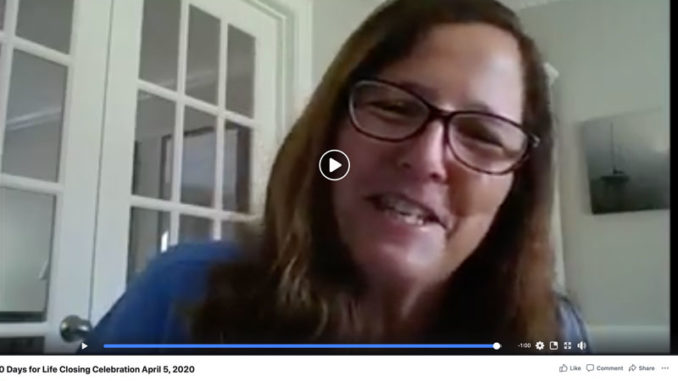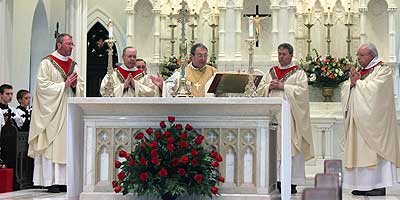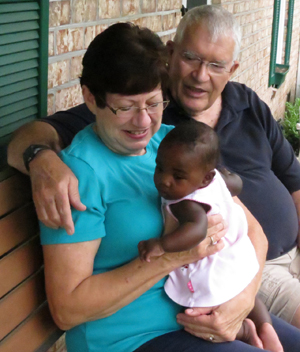
GREENVILLE—Public restrictions imposed statewide in response to the COVID-19 pandemic curtailed a key, public element of this spring’s 40 Days for Life campaign, but the virus couldn’t stop the ongoing, behind-the-scenes fight to end abortion
“We asked people to pray and fast at home,” Valerie Baronkin, Greenville 40 Days for Life coordinator, said following the virtual closing celebration held on Palm Sunday.
The campaign, which this year stretched from Feb. 26 to April 5, was forced to suspend its public vigils on March 22. The vigils are held around the clock outside abortion clinics during the 40 days campaign.
In a prepared statement from Shawn Carney, president and CEO of the National 40 Days for Life, the decision to curtail the public prayer vigils was in response to the increasing state and local guidelines limiting crowd size aimed at slowing the spread of the virus.
“Most importantly, for the safety of our families and volunteers, ending the vigil portion of the campaign … is the appropriate step,” Carney said at the time of the decision to halt the public vigils.
Nevertheless, the private prayers and fasting worked.
For the Greenville Deanery, this spring’s campaign resulted in nine saved babies, Baronkin said during the virtual closing celebration, which attracted more than 40 pro-life activists. The hour-long event included testimonies from several sidewalk advocates, who witnessed the saving of a baby during the spring campaign, along with a presentation from John Mark Porter, former president of Advocates for Life, a non-partisan national association of pro-life college students.
Porter is a graduate student at the University of South Carolina and the 2020 recipient of the 40 Days for Life “4040 Scholarship.” The $4,040 gift is awarded annually to full-time graduate and undergraduate students who are actively involved in the pro-life movement.
Porter characterized college campuses across the country as “battlegrounds in the abortion fight.” He said approximately 40 percent of all abortions in the U.S. are performed on college-age women. In an effort to reduce that number, Porter started a program on campus identifying pro-life faculty who offer counseling and support to pregnant college students.
“We have little lighthouses, little pockets of hope all around the campus,” he said.
A parishioner at St. Mary Magdalene Church in Simpsonville, Baronkin said the COVID-19 pandemic has created more challenges for the pro-life movement, beyond practicing social distancing and gathering in smaller groups.
“There are more abortions going on (at the clinic) now, at the end of this campaign,” she said, the result of couples spending more time at home, and the uncertainty in their lives brought on by the virus.
“People are spending more time together, but they’re also scared,” Baronkin said, and the abortion industry is taking advantage of that fear.
Earlier this month, state Sen. Richard Cash, R-Anderson, and Reps. John McCravy, R-Greenwood, and Stewart Jones, R-Laurens, called on Gov. Henry McMaster to order clinics that perform abortions in the state to close. Pro-life activists have argued that abortions are elective procedures that unnecessarily expose patients and providers at the clinics to COVID-19.
Baronkin said the pro-life ministry is looking at new ways to fight abortion given the current restrictions aimed at containing the pandemic, including reaching out directly to women in crisis pregnancies.
“We would get churches to volunteer to help women in need,” she said, using a current program called “Embrace Grace,” a Bible study program that brings pregnant women together to discuss and reflect on common circumstances. Also, discussions are underway on the creation of a pregnancy care team.



